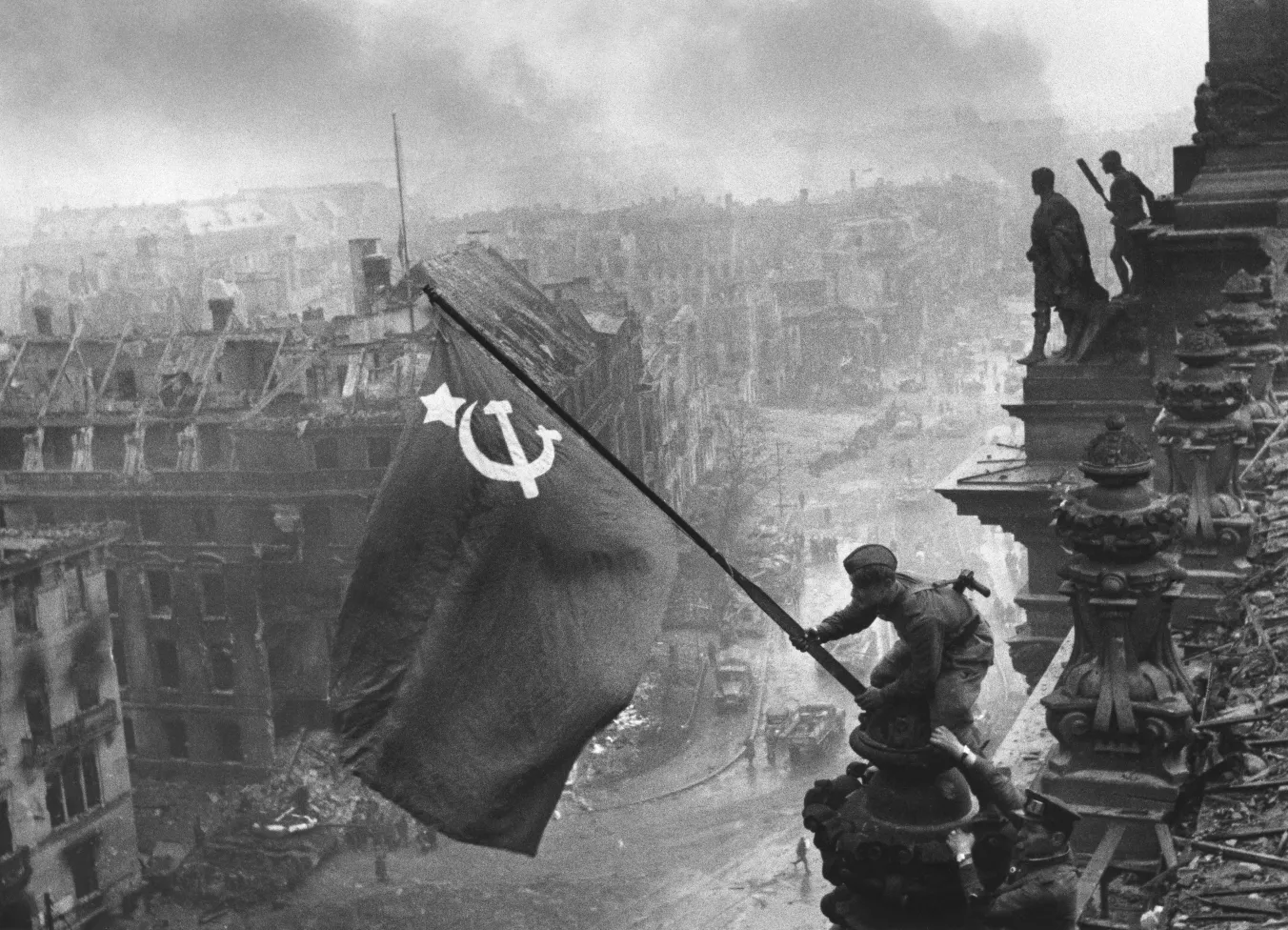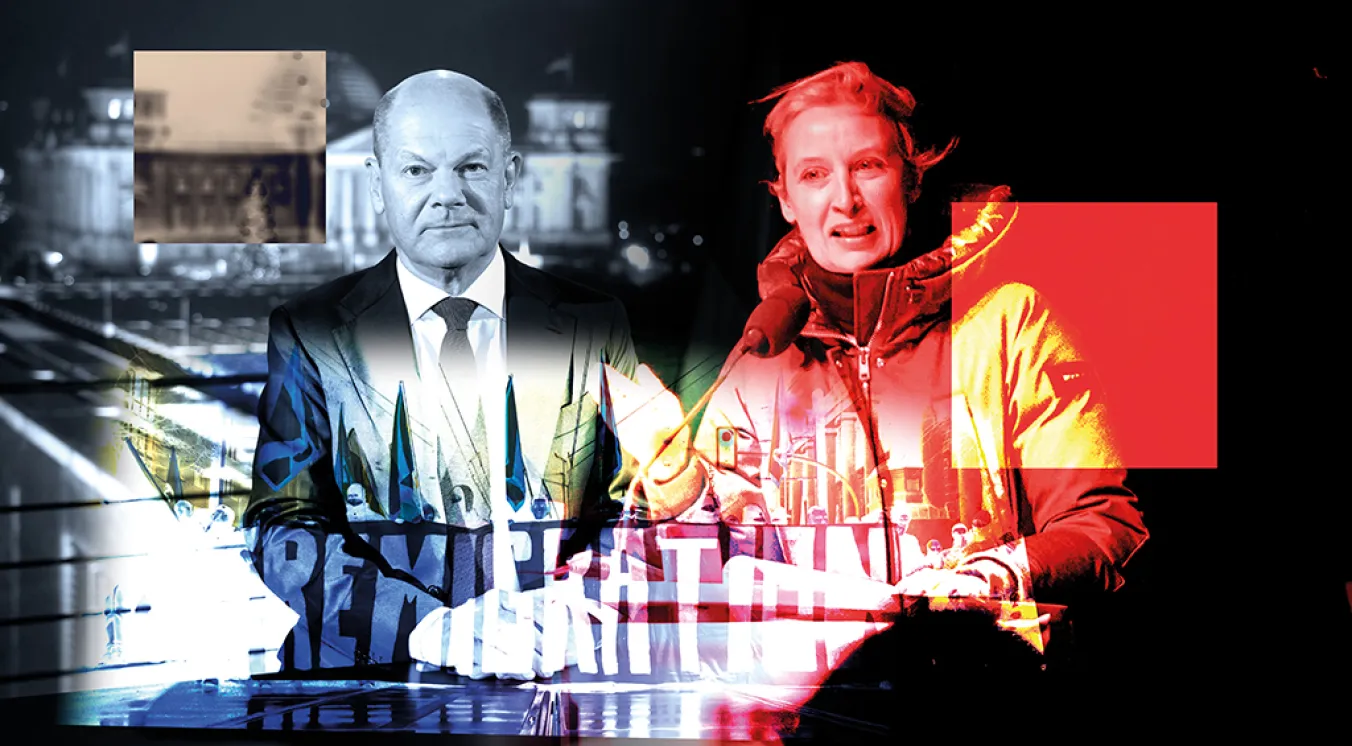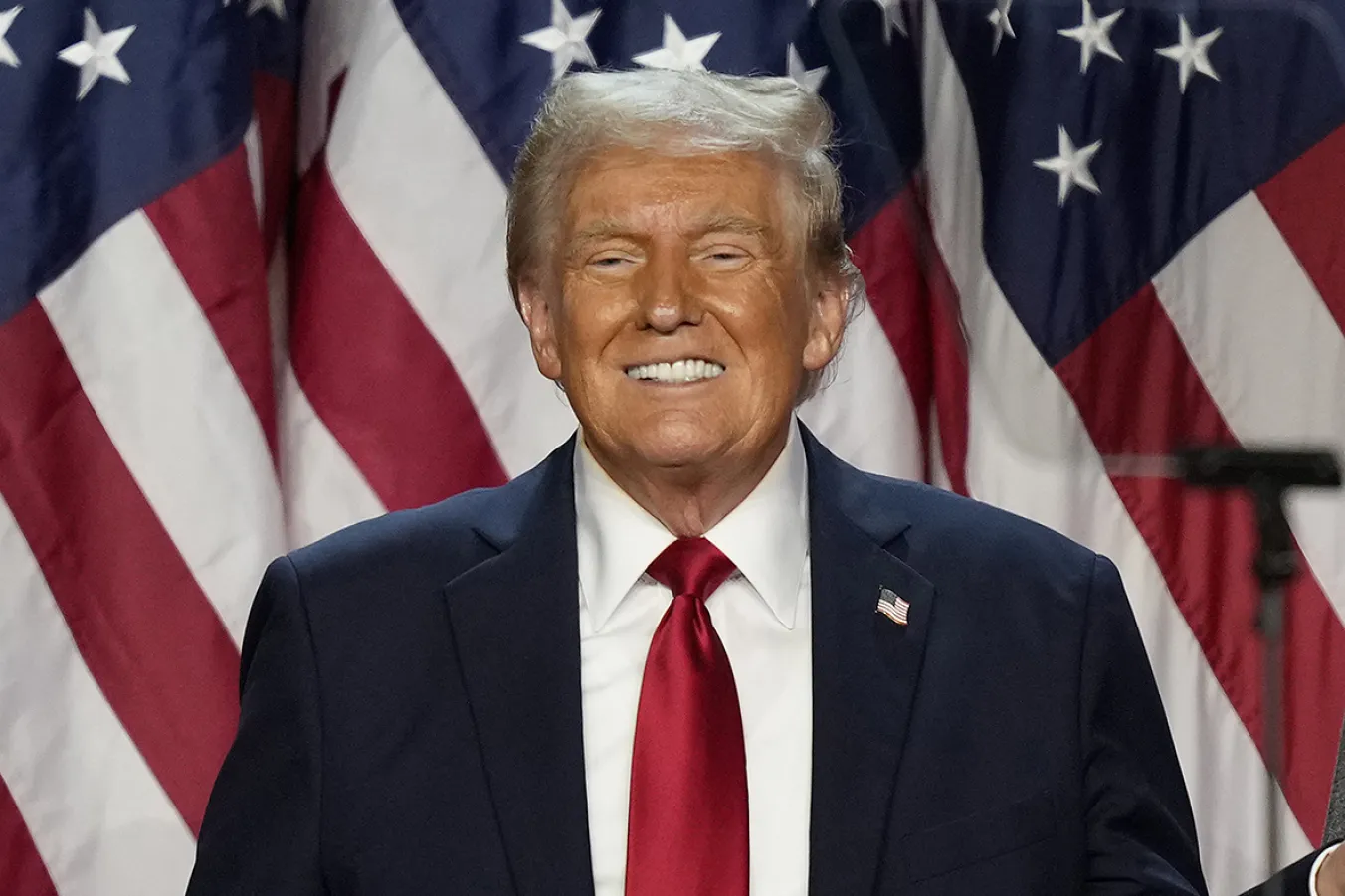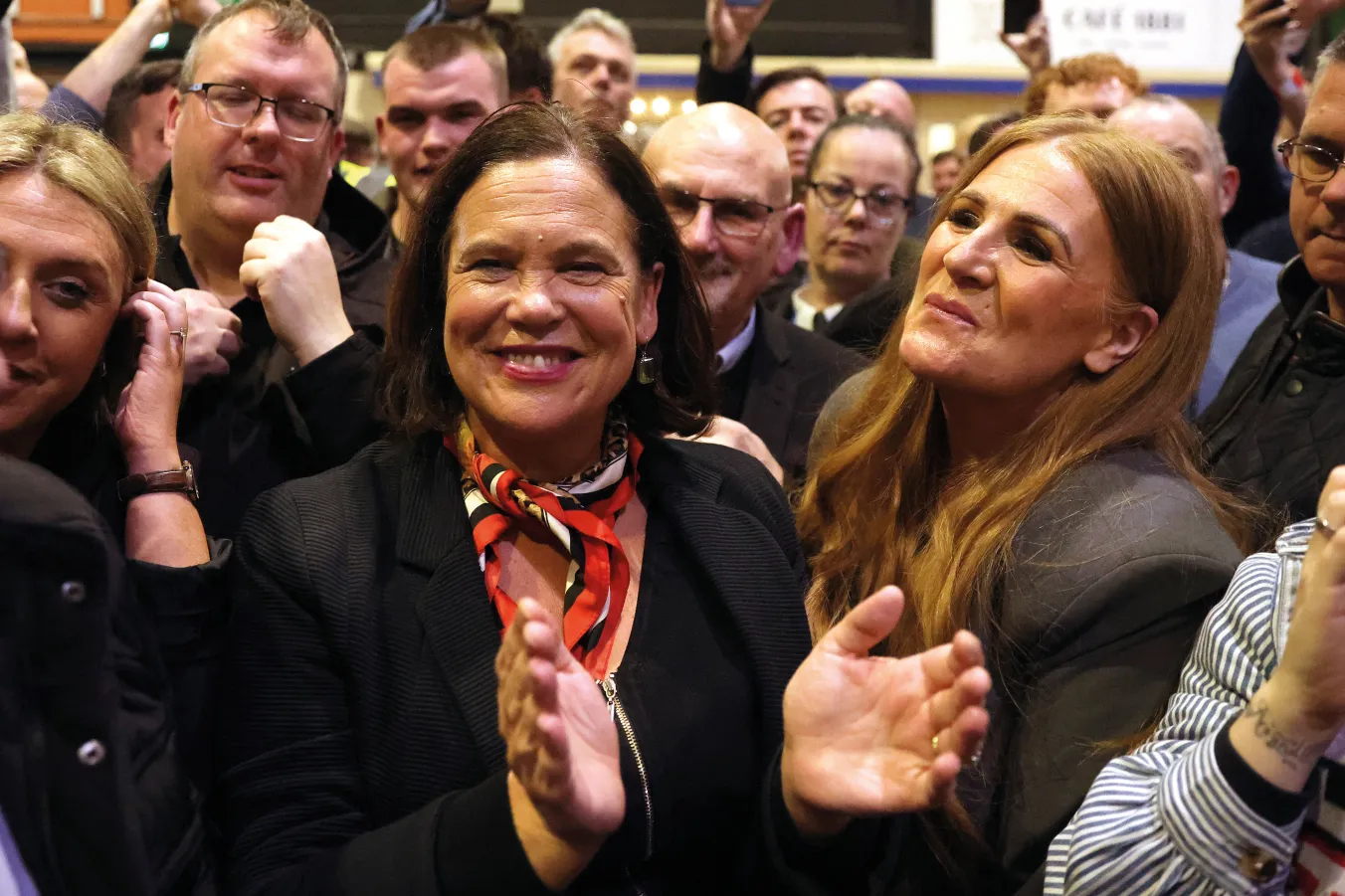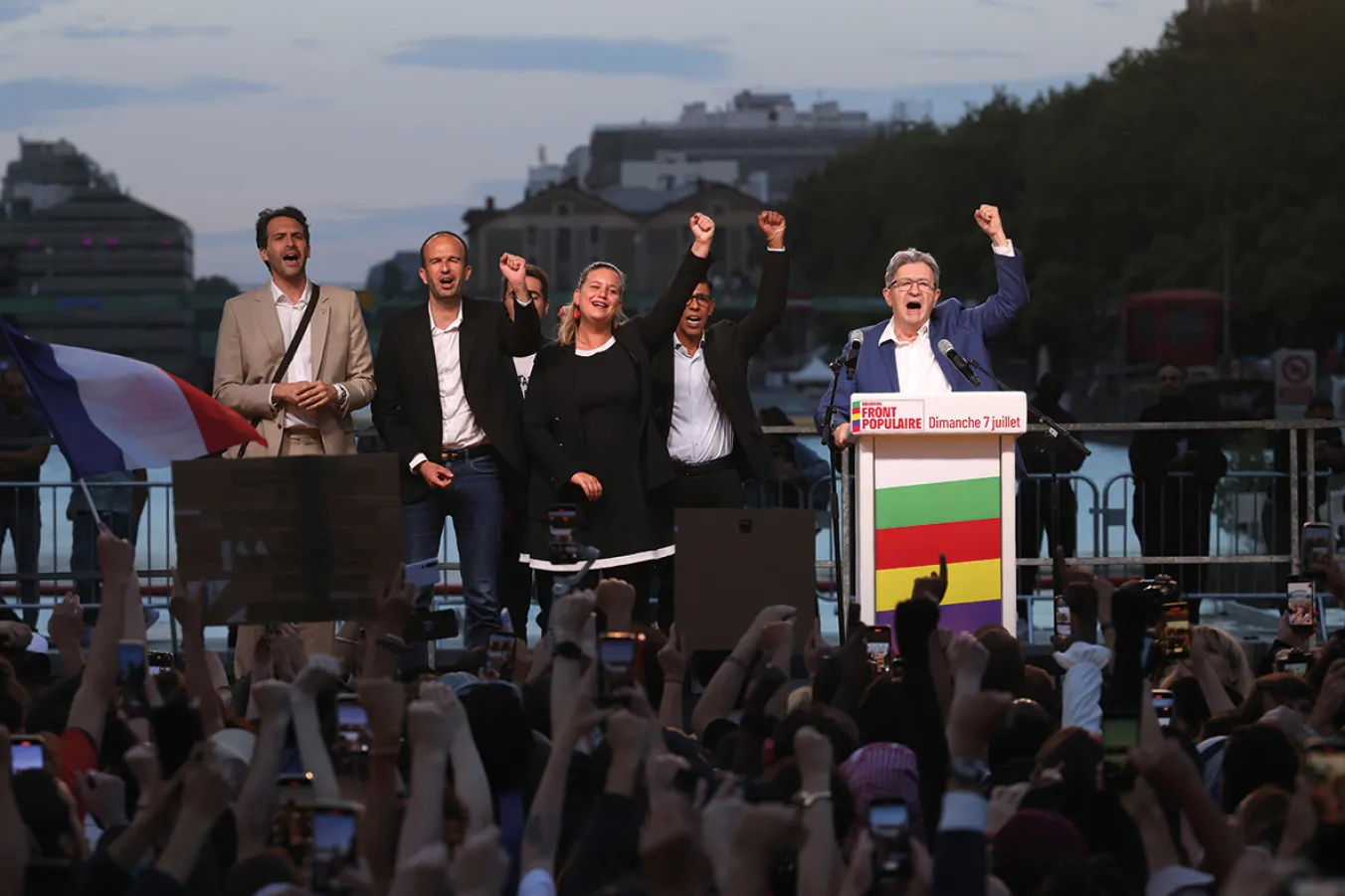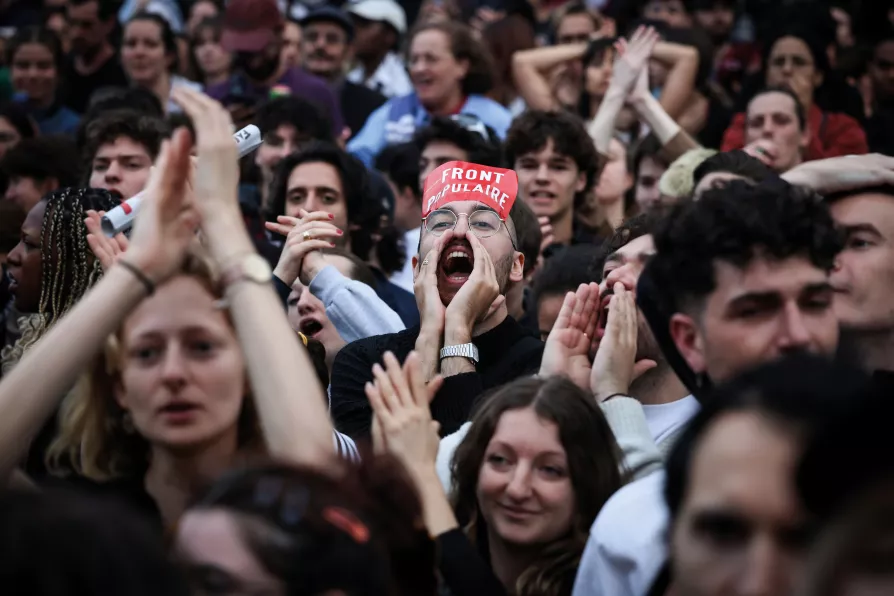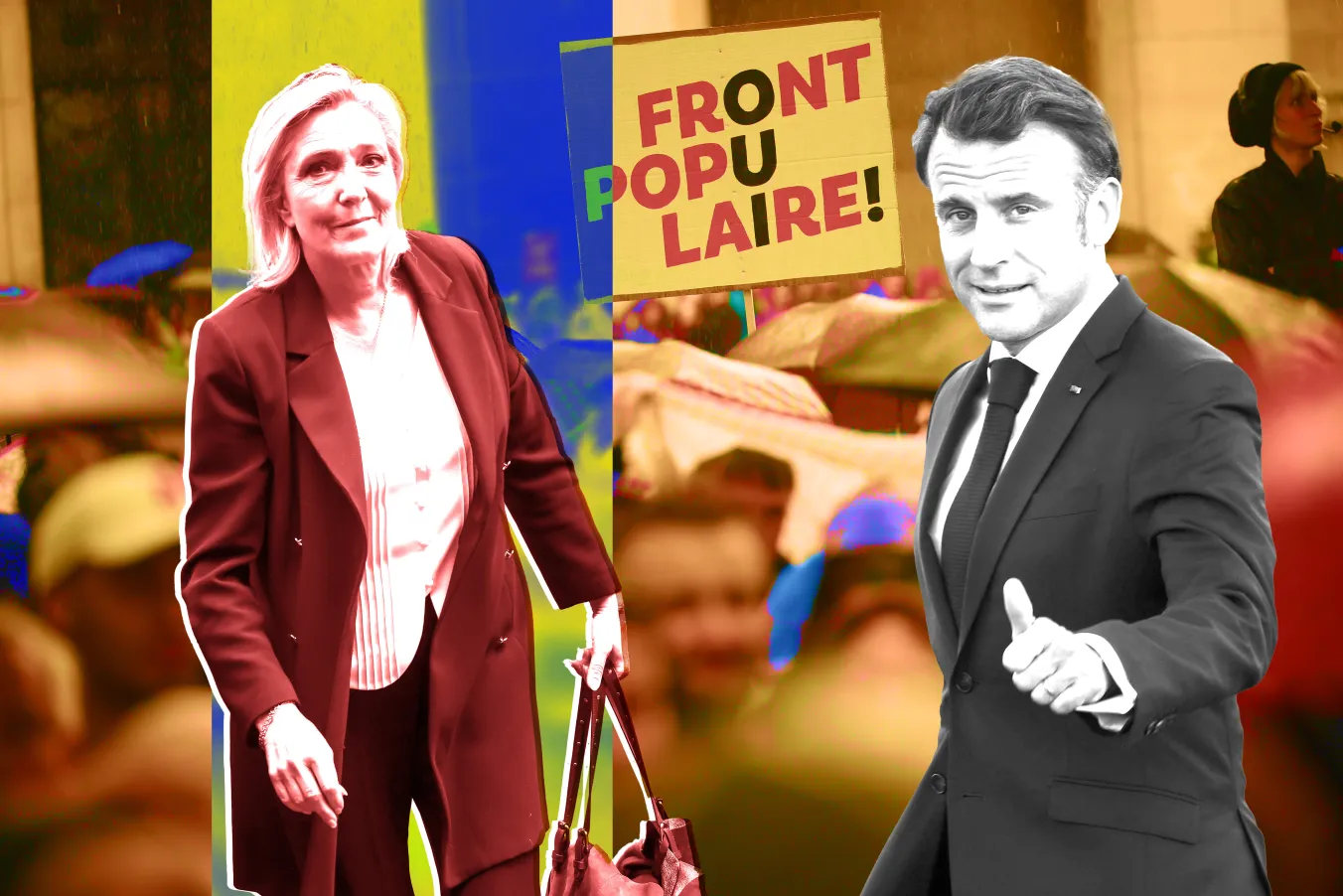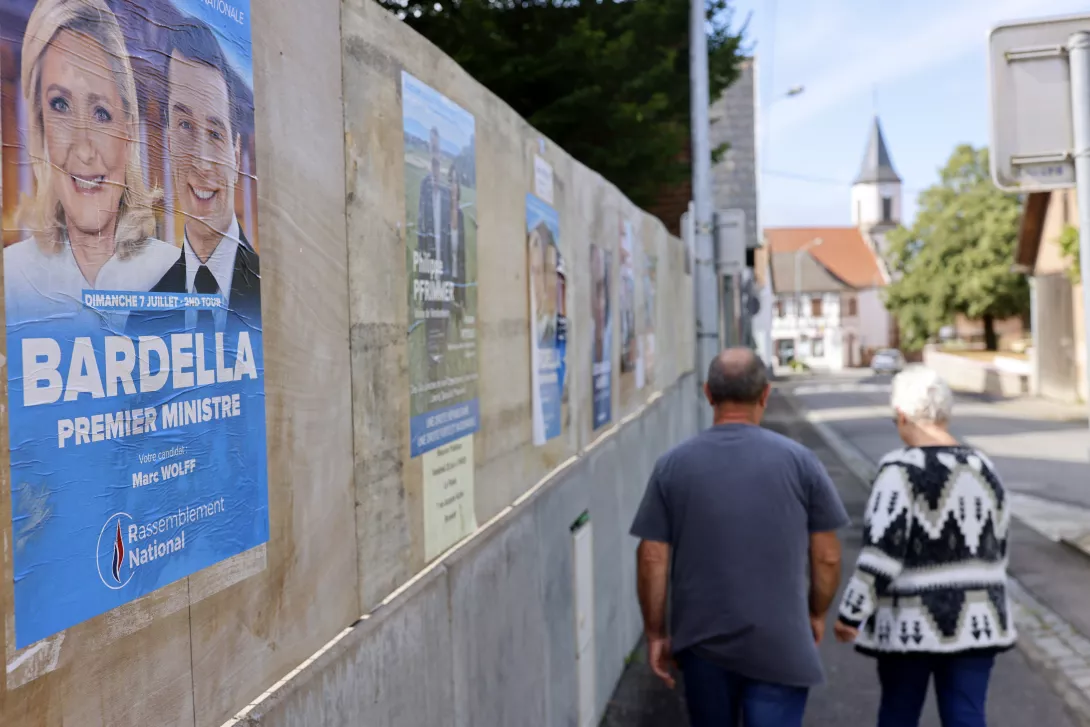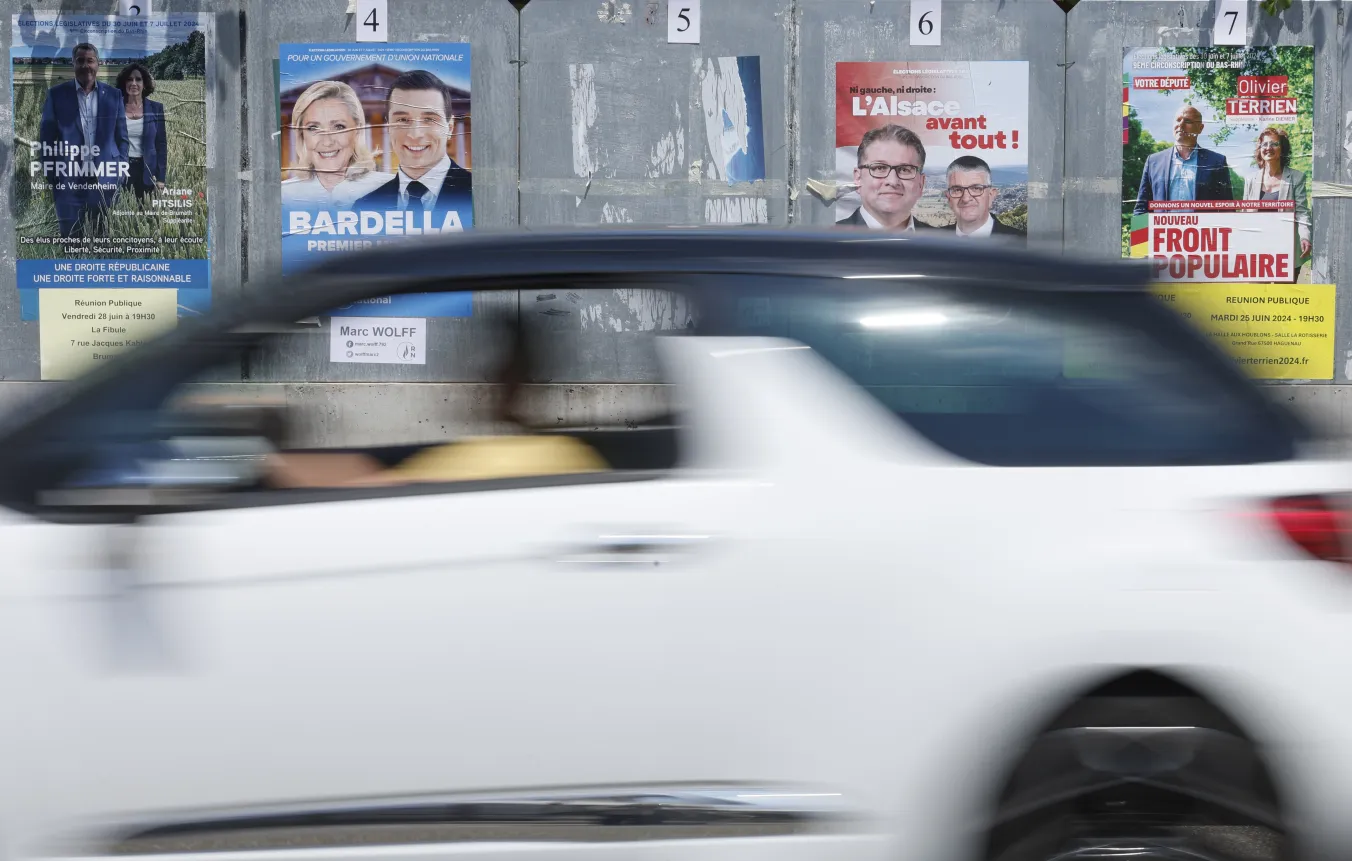
FOLLOWING its defeat in the first round of the French legislative elections the Establishment tendency in French politics has rediscovered “republican values.”
These it traditionally subordinates to its position in the global neoliberal pecking order but, faced with the collapse in support for his government, Macron has called for a “republican front” to block Marine Le Pen’s eurosceptic and anti-immigration party National Rally (RN).
Republican values are more usually the ideological and political property of the French left and the “resistance generation” of WWII.
Such values expressed the common cause between the left and such bourgeois forces who opposed the collaboration that big business and banks reached with the Nazi occupation.
The potency of this construct derives in present circumstances from the advance to first place of RN. The RN is the slightly sanitised and rebranded National Front (FN) founded by her father Jean-Marie Le Pen, racist, nationalist, High Catholic and a sympathiser with Vichy who described the Holocaust as merely a “historical detail.”
Among the founders of the FN were veterans of the Waffen SS who fought for Hitler on the eastern front.
This is still a powerful factor in French politics. Although a section of the British ruling class tried hard to reach an accommodation with Hitler and forge a common front against the USSR the patriotism of our rulers was never tested by a Nazi occupation.
In France, the taint of collaboration still hangs around those in French society who found a form of cohabitation with the occupiers that included sending French Jews to the death camps.
Marine Le Pen’s task is to detoxify RN and her strategy is to find common cause with that section of the French bourgeoisie who fear that a government of the left, even one forced into cohabitation with a root and branch neoliberal banker like Emmanuel Macron, represents a threat to their wealth and power.
At the same time RN has successfully sought a following in sections of French society marginalised and impoverished by neoliberalism.
Macron’s defeat represents something like the collapse of the bourgeois order. Recollect that Macron created his political vehicle by assembling diverse elements of the political elite that are loyal to the corporate values of neoliberalism as expressed in the Maastricht and Lisbon treaties and a global order policed by the World Bank and the IMF as the practical expression of Atlanticism.
The Socialist Party (PS) deconstructed, with many of its local and regional governing functionaries joining with Macron’s political vehicle.
The formation on the left of Jean-Luc Melenchon’s France Unbowed party created a political project designed to intersect the support of both the PS and the French Communist Party (PCF).
Despite the tensions between these elements (and the Greens) apparent during the earlier Euro elections, their rapidly assembled New Popular Front (NFP) forced Macron’s party into third place.
Now, something over 200 candidates from the left-wing NFP and Macron’s outfit have retired from the second round contest so that the RN candidates face a single opponent.
In the first round the RN and its allies won 33.15 per cent. The left-wing NFP coalition gained 27.99 per cent. Macron’s formation came third with 20.04 per cent. Traditional conservative party the Republicans, the heir to General de Gaulle’s ruling post-war formation, has split and the section not aligned with RN gathered just 6.57 per cent.
RN made a big advance on its vote in the 2022 legislative elections. With heightened interest and a higher turnout it scored 10.63 million votes, an advance on its 2022 score of 4.2 million.
One sign of its growth is the first-round defeat of Fabien Roussel, secretary of the PCF, who lost to the RN in a seat held by the communists since the resistance.
RN elected 39 with an absolute majority in the first round, the NFP took 32.
At close of play last Tuesday — the last opportunity to drop out — voters were left with 390 duels and 108 triangular contests.
This puts the RN in an exceptionally strong position and this is reflected in the rhetoric of Jordan Bardella, the 28-year-old protege of Marine Le Pen and candidate for premier who wants “an absolute majority or nothing.”
Macron is on the back foot. France’s daily socialist newspaper l’Humanite, says: “There is indeed little doubt that the President of the Republic, through his policy and his mode of governance, bears immense responsibility for the score obtained by the extreme right during this first round of the legislative elections which he himself even summoned.”
There are 275 constituencies where a vote for an NFP candidate this Sunday can defeat the RN. Having secured a measure of collaboration with business sectors, Bardella has now turned his fire on the NFP, where RN is in competition for working-class votes.
On Wednesday last, the PCF said that the arrival of the RN in government would mean that the far right could place itself at the heart of the balance of power and European policies.
The PCF argued that this is the consequence of the political crisis in Europe, “the devastation caused by neoliberal policies, the exacerbation of identity panics, ideological decompositions and the choice of a more or less important part in Europe of the right and the national bourgeoisies to find an authoritarian solution to the crisis of capitalism.”
It warned against the possible formation of a Paris-Rome axis as a factor in changes in European policies under the aegis of the far right.
“The government of Giorgia Meloni stands out as the big winner of the European elections not only in Italy but throughout Europe.”
The PCF argues that the accession of the RN to power in France would accelerate the political recompositions underway on a continent-wide scale centred on a government in power in France “which makes the establishment of a ‘national priority,’ that is to say a recomposition of societies on bases of racist and xenophobic exclusion.”
For the PCF “the historical responsibility of the European left” to challenge this development is the context in which they conceive of future development.
A big part of RN’s appeal in the deindustrialised areas of northern France and in marginal urban and rural areas is its longstanding repetition of an anti-EU position that is long on rhetoric and short on detail.
The RN spokesman on economic affairs and likely finance minister in a far-right government is Jean-Phillipe Tanguy.
His clear position — sharply presented to reassure big business and the banks — is that France must retain the current government’s plan to reduce the deficit to 3 per cent of gross domestic product (GDP) by 2027, in line with its commitments under the EU’s fiscal rulebook, the Stability and Growth Pact.
“The Stability Pact has to be respected,” Tanguy said. “France must honour its word.”
There is a clear contradiction between the RN electoral appeal to working people — which includes a sharp cut in VAT on fuel and electricity and tax cuts — and its adherence to the EU’s fiscal regime.
The gap between expectation and reality is unlikely to filled by RN’s bundle of reactionary, headline-catching pledges to crack down on school regimes, “restore order on the streets” and legal measures to deport foreigners convicted of crimes.
Much of RN’s rhetoric speaks to a notion of “national preference.” At one level this simply a barely disguised dressing for outright discrimination, principally against Muslims, but with a sense that this is an economic measure available to a government so disposed.
That such a strategy is completely incompatible with Tanguy’s adherence to the EU’s regulatory framework is a problem in storage if the RN assumes government office.
The political reality is that if an RN government attempted an economic programme that might satisfy those sections of the working class and the rural poor who bear the brunt of neoliberalism then it could be disposed of as rapidly as Liz Truss’s government when it departed from the neoliberal paradigm.
No less a problem awaits an NFP government if it sets about implementing its programme.
What political reserves of popular and working-class support the left might call on if it was presented with a parliamentary majority will be clear after Sunday’s second round when it would have to deal with a rapidly reconstituting right and in cohabitation with a neoliberal president.
